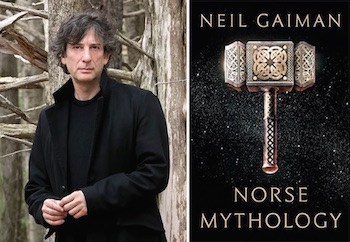
My background was originally in philosophy. Science fiction, while my preferred fiction choice, wasn’t what I wanted to do in college. I pushed myself to study philosophy because I found the ideas interesting. Yet, the career prospects were null and the hobbyist possibilities the same.
In thinking about philosophy in science fiction I think about the short story from the July 2017 issue of Apex magazine: The Turing Machines of Babel by Eric Schwitzgebel.
One day I may review the short story, but I mentioned the story on my twitter account. In the mean time, let’s talk about philosophy in science fiction. There are a few possible ways to incorporate a philosophical question:
- 1. Directly asking the question.
You could, simply, have a character wake up one day and ask, “is there a god?”
It’s been done to death and often feels forced, but it’s a possibility.
- 2. Indirectly answering the question.
Instead of making your main character or side characters ask the question, have them deal with an outsider who wonders about why they do a certain thing, which is tangentially related. So, instead of asking “is there a god?” you could have an observer watch the characters perform their actions and ask “do they do this for their gods?” Make it assumptive, and instead of answering the question of “is there a god?” we deal with the moral argument for god’s existence, for example.
- 3. Showing a world where the question isn’t asked.
If you want to explore the question “how do you know what you know?” Then show a world where it’s all just assumed and no one questions themselves. In this way, you create a reality in the mind of the reader that you can explore and confront. How do these characters know what they know? Is that right?
- 4. Showing a world that explains the question and your answer.
This is how The Turing Machines of Babel did it, in my opinion. The universe was explored in the story, with its explanations and questions all laid out in how the universe was constructed. Coming to that universe was the main character, and everything was explained through his research and understanding.
Well that’s a few examples and suggestions. I hope it helps!
Make sure to follow me on Twitter and Instagram, and check out some of my other blog posts:
Going from Outline to Manuscript




 In developing a story, you will often hear the advice that outlining organizes your thoughts and makes the story more coherent.
In developing a story, you will often hear the advice that outlining organizes your thoughts and makes the story more coherent.
 Chasing after the long shot is what made America into what it is today. Entrepreneurs who built businesses, engineers who built bridges, and artists who imagined the future created the future we’re in today.
Chasing after the long shot is what made America into what it is today. Entrepreneurs who built businesses, engineers who built bridges, and artists who imagined the future created the future we’re in today. Stephen King seems to support writing every day (“at least 1,000 words”). Far be it from me to question one of the greats, but is it really necessary to write every day to be a successful writer?
Stephen King seems to support writing every day (“at least 1,000 words”). Far be it from me to question one of the greats, but is it really necessary to write every day to be a successful writer? It sounds simple. It even sounds like a platitude devoid of any meaning.
It sounds simple. It even sounds like a platitude devoid of any meaning.